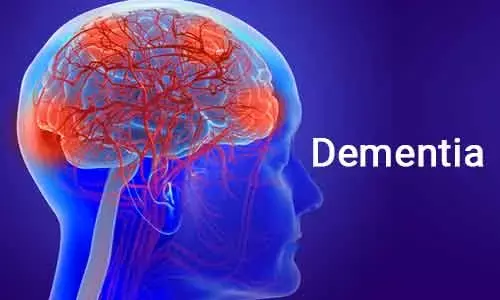- Home
- Medical news & Guidelines
- Anesthesiology
- Cardiology and CTVS
- Critical Care
- Dentistry
- Dermatology
- Diabetes and Endocrinology
- ENT
- Gastroenterology
- Medicine
- Nephrology
- Neurology
- Obstretics-Gynaecology
- Oncology
- Ophthalmology
- Orthopaedics
- Pediatrics-Neonatology
- Psychiatry
- Pulmonology
- Radiology
- Surgery
- Urology
- Laboratory Medicine
- Diet
- Nursing
- Paramedical
- Physiotherapy
- Health news
- Fact Check
- Bone Health Fact Check
- Brain Health Fact Check
- Cancer Related Fact Check
- Child Care Fact Check
- Dental and oral health fact check
- Diabetes and metabolic health fact check
- Diet and Nutrition Fact Check
- Eye and ENT Care Fact Check
- Fitness fact check
- Gut health fact check
- Heart health fact check
- Kidney health fact check
- Medical education fact check
- Men's health fact check
- Respiratory fact check
- Skin and hair care fact check
- Vaccine and Immunization fact check
- Women's health fact check
- AYUSH
- State News
- Andaman and Nicobar Islands
- Andhra Pradesh
- Arunachal Pradesh
- Assam
- Bihar
- Chandigarh
- Chattisgarh
- Dadra and Nagar Haveli
- Daman and Diu
- Delhi
- Goa
- Gujarat
- Haryana
- Himachal Pradesh
- Jammu & Kashmir
- Jharkhand
- Karnataka
- Kerala
- Ladakh
- Lakshadweep
- Madhya Pradesh
- Maharashtra
- Manipur
- Meghalaya
- Mizoram
- Nagaland
- Odisha
- Puducherry
- Punjab
- Rajasthan
- Sikkim
- Tamil Nadu
- Telangana
- Tripura
- Uttar Pradesh
- Uttrakhand
- West Bengal
- Medical Education
- Industry
Angiotensin -II stimulating antihypertensives markedly reduce dementia risk: Study

Angiotensin -II stimulating antihypertensives users had lower dementia rates compared to angiotensin-II inhibiting antihypertensive users, suggests the findings of a recent study. The interesting findings have recently been published in the Neurology.
Accumulating evidence suggests that some antihypertensive drug subclasses may reduce incident dementia beyond their effect on BP. The mechanisms underlying these differential effects are currently unclear. They may be related to the renin-angiotensin system . In the RAS, angiotensin-II lowers BP, mainly via activity at angiotensin type 1 (AT1) receptors. It also activates AT2 receptors and AT4 receptors, which have a number of associated effects (vasodilation, apoptosis). Hypothetically, the RAS also helps maintaining brain function. Angiotensin-II and -IV seem to protect against ischemia, especially through AT2, and preserve memory through AT4. Furthermore, angiotensin converting enzyme mediates amyloid-beta degradation in the brain.
Researchers undertook the preDIVA trial to assess whether angiotensin-II stimulating antihypertensives (thiazides, dihydropyridine calcium channel blockers, and angiotensin-1 receptor blockers) convey a lower risk of incident dementia compared to angiotensin-II inhibiting antihypertensives (angiotensin-converting enzyme inhibitors, beta blockers, and non-dihydropyridine calcium channel blockers), in accordance with the 'angiotensin hypothesis'.
For the study design, data were derived from the Prevention of Dementia by Intensive Vascular Care (preDIVA) trial . This RCT tested the efficacy of four-monthly visits to a practice nurse for cardiovascular risk management, compared to usual care by the general practitioner, on the prevention of dementia.
Antihypertensive use was based on prescription records cross-checked with participants during the baseline assessment. Individuals using ARB, DiCCB and/or thiazide(-like) diuretics were categorized as angiotensin-II-stimulating antihypertensive users. Individuals using non-DiCCB, BB, and ACEI were categorized as angiotensin-II-inhibiting antihypertensive users.
On analysis, the following facts emerged.
- After a median of 6.7 years of follow-up, dementia status was available for 1870 (98%) and mortality for 1904 (>99%) participants.
- Dementia incidence was 5.6% (27/480) in angiotensin-II stimulating, 8.2% (59/721) in angiotensin-II inhibiting, and 6.9% (46/669) in both antihypertensive type users.
- Adjusted for dementia risk factors including blood pressure and medical history, angiotensin-II stimulating antihypertensive users had a 45% lower incident dementia rate (HR=0.55, 95%CI=0.34-0.89) without excess mortality (HR=0.86, 95%CI=0.64-1.16), and individuals using both types had a non-significant 20% lower dementia rate (HR=0.80, 95%CI=0.53-1.20) without excess mortality (HR=0.97, 95%CI=0.76-1.24), compared to angiotensin-II inhibiting antihypertensive users.
- Results were consistent for subgroups based on diabetes and stroke history, but may be specific for individuals without a history of cardiovascular disease.
"This study found that individuals using angiotensin - II - stimulating antihypertensives had approximately 40% lower dementia rates compared to those using angiotensin-II-inhibiting antihypertensives. This association was not due to increased mortality and was independent of cardiovascular risk factors and comorbidity, but it may be specific for individuals without CVD."concluded the team.
For full article follow the link: https://doi.org/10.1212/WNL.0000000000010996
Primary source: Neurology
Dr Satabdi Saha (BDS, MDS) is a practicing pediatric dentist with a keen interest in new medical researches and updates. She has completed her BDS from North Bengal Dental College ,Darjeeling. Then she went on to secure an ALL INDIA NEET PG rank and completed her MDS from the first dental college in the country – Dr R. Ahmed Dental College and Hospital. She is currently attached to The Marwari Relief Society Hospital as a consultant along with private practice of 2 years. She has published scientific papers in national and international journals. Her strong passion of sharing knowledge with the medical fraternity has motivated her to be a part of Medical Dialogues.
Dr Kamal Kant Kohli-MBBS, DTCD- a chest specialist with more than 30 years of practice and a flair for writing clinical articles, Dr Kamal Kant Kohli joined Medical Dialogues as a Chief Editor of Medical News. Besides writing articles, as an editor, he proofreads and verifies all the medical content published on Medical Dialogues including those coming from journals, studies,medical conferences,guidelines etc. Email: drkohli@medicaldialogues.in. Contact no. 011-43720751


